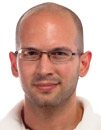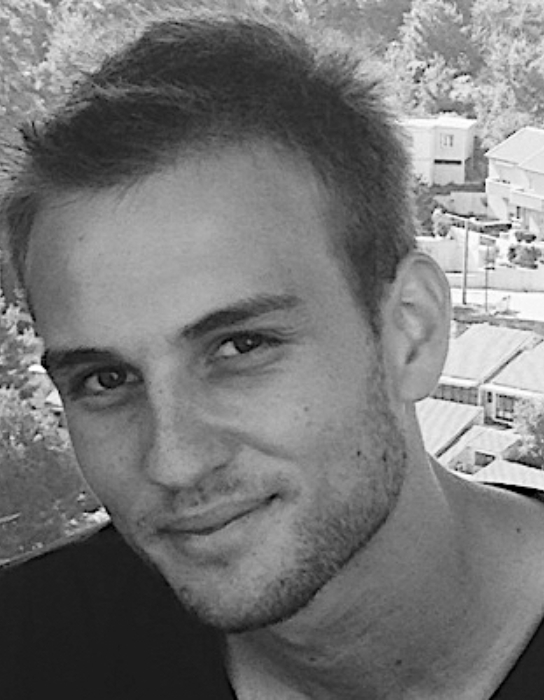Odjel za obradu signala uključuje znanstvena područja poput teorije signala i sustava, teorije i primjene kodiranja, uporabe filtara, prijenosa signala, estimacije, detekcije, analize, prepoznavanja, sinteze te reprodukcije signala digitalnim ili analognim uređajima i tehnikama. Pojam signala uključuje audio i video signale, govor, slike, komunikacije, signal sonara, radara kao i medicinske, glazbene i druge signale.
Odjel za obradu signala
Odjel za obradu signala Hrvatske sekcije IEEE, Hrvatska sekcija IEEE i Zavod za elektroničke sustave i obradbu informacija FER-a vas pozivaju na predavanje
"Sampling, Sparsity, and Inverse Problems"
Dr. Martin Vetterli
Ecole Polytechnique Fédérale de Lausanne, Switzerland
Predavanje će bit održano u četvrtak 20. rujna 2012. godine s početkom u 15:00 u Sivoj vijećnici Fakulteta elektrotehnike i računarstva. Jezik predavanja je engleski. Predavanje je ujedno organizirano kao jedno od pozvanih predavanja u sklopu dvodnevne radionice "First Croatian Computer Vision Workshop", 20-21. rujna 2012, koju organizira novo uspostavljeni "Centar izvrsnosti za računalni vid" osnovan u okviru projekta financiranog od strane Fonda za razvoj Sveučilišta u Zagrebu.
Predavanje, kao i cijela radionica otvoreni su za sve zainteresirane, a posebno pozivamo studente diplomskog i poslijediplomskog studija na predavanje ovog renomiranog gosta!
Sažetak predavanja i životopis predavača nalaze se u nastavku obavijesti.
Sažetak predavanja
Sampling, Sparsity, and Inverse Problems
Martin Vetterli
Ecole Polytechnique Fédérale de Lausanne, Switzerland
Sampling is a central topic in signal processing, communications, and in all fields where the world is analog and computation is digital. The question is simple: When does a countable set of measurements allow a perfect and stable representation of a class of signals? This allows the reconstruction of the analog world, or interpolation. A related problem is when these measurements allow to solve inverse problems accurately, like source localization.
Classic results concern bandlimited functions and shift-invariant subspaces, and use linear approximation. Recently, non-linear methods have appeared, based on parametric methods and/or convex relaxation, which allow a broader class of sampling results. We review sampling of finite rate of innovation (FRI) signals, which are non-bandlimited continuous-time signals with a finite parametric representation. This leads to sharp results on sampling and reconstruction of such sparse continuous-time signals.
We then explore performance bounds on retrieving sparse continuous-time signals buried in noise. While this is a classic estimation problem, we show sharper lower bounds for simple cases, indicating (i) there is a phase transition and (ii) current algorithms are close to the bounds. This leads to notions of resolution or resolvability.
We then turn our attention to sampling problems where physics plays a central role. After all, many sensed signals are the solution of some PDE. In these cases, continuous-time or continuous-space modeling can be advantageous, be it to reduce the number of sensors and/or the sampling rate.
First, we consider the wave equation, and review the fact that wave fields are essentially bandlimited in space-time domain. This can be used for critical sampling of acquisition or rendering of wave fields. We also show an acoustic source localization problem, where wideband frequency probing and finite element modeling show interesting localization power.
Then, in a diffusion equation scenario, source localization using a sensor network can be addressed with a parametric approach, indicating trade-offs between spatial and temporal sampling densities. This can be used in air pollution monitoring and temperature sensing.
In all these problems, the computational tools like FRI or CS come in handy when the modeling and the conditioning is adequate. Last but not least, the proof of the pudding is in experiments and/or real data sets.
Joint work with T.Blu (CUHK), Y.Lu (Harvard), Y.Barbotin, I.Dokmanic, M.Kolundzija, M.Martinez-Camara, J.Ranieri (EPFL)
Životopis predavača
Martin Vetterli was born in 1957 and grew up near Neuchâtel. He received the Dipl. El.- Ing. degree from Eidgenössische Technische Hochschule (ETHZ), Zurich, in 1981, the Master of Science degree from Stanford University in 1982, and the Doctorat ès Sciences degree from the Ecole Polytechnique Fédérale, Lausanne, in 1986.
After his dissertation, he was an Assistant and then Associate Professor in Electrical Engineering at Columbia University in New York, and in 1993, he became an Associate and then Full Professor at the Department of Electrical Engineering and Computer Sciences at the University of California at Berkeley. In 1995, he joined the EPFL as a Full Professor. He held several positions at EPFL, including Chair of Communication Systems and founding director of the National Competence Center in Research on Mobile Information and Communication systems (NCCR-MICS). From 2004 to 2011 he was Vice President of EPFL and since March 2011, he is the Dean of the School of Computer and Communications Sciences. As of January 1st, 2013 he will lead the Swiss National Science Foundation.
He works in the areas of electrical engineering, computer sciences and applied mathematics. His work covers wavelet theory and applications, image and video compression, self-organized communications systems and sensor networks, as well as fast algorithms, and has led to about 150 journals papers. He is the co-author of three textbooks, with J. Kovacevic, "Wavelets and Subband Coding" (Prentice-Hall, 1995), with P. Prandoni, "Signal Processing for Communications", (CRC Press, 2008) and with J. Kovacevic and V. Goyal, of the forthcoming book "Fourier and Wavelet Signal Processing" (2012).
His research resulted also in about two dozen patents that led to technology transfers to high-tech companies and the creation of several start-ups.
His work won him numerous prizes, like best paper awards from EURASIP in 1984 and of the IEEE Signal Processing Society in 1991, 1996 and 2006, the Swiss National Latsis Prize in 1996, the SPIE Presidential award in 1999, the IEEE Signal Processing Technical Achievement Award in 2001 and the IEEE Signal Processing Society Award in 2010. He is a Fellow of IEEE, of ACM and EURASIP, was a member of the Swiss Council on Science and Technology (2000-2004), and is an ISI highly cited researcher in engineering.
Repozitorij
 MODELING AND CODING OF SPEECH AND AUDIO SIGNALS [268,28 KiB]Bastiaan Kleijn KTH School of Electrical Engineering Stockholm
MODELING AND CODING OF SPEECH AND AUDIO SIGNALS [268,28 KiB]Bastiaan Kleijn KTH School of Electrical Engineering Stockholm Flexible Quantization [186,41 KiB]Bastiaan Kleijn KTH School of Electrical Engineering Stockholm
Flexible Quantization [186,41 KiB]Bastiaan Kleijn KTH School of Electrical Engineering Stockholm Robust Source Coding [259,82 KiB]Bastiaan Kleijn KTH School of Electrical Engineering Stockholm
Robust Source Coding [259,82 KiB]Bastiaan Kleijn KTH School of Electrical Engineering Stockholm Signal Enhancement [197,02 KiB]Bastiaan Kleijn KTH School of Electrical Engineering Stockholm
Signal Enhancement [197,02 KiB]Bastiaan Kleijn KTH School of Electrical Engineering Stockholm
 ArdbegVectorProcessorOct?2008 [327,7 KiB]Prezentacija Mladen Wilder
ArdbegVectorProcessorOct?2008 [327,7 KiB]Prezentacija Mladen Wilder Veliki hadronski sudarivač - vrhunska tehnologija za vrhunsku znanost [19,89 MiB]Prezentacija prof. Guy Paić
Veliki hadronski sudarivač - vrhunska tehnologija za vrhunsku znanost [19,89 MiB]Prezentacija prof. Guy Paić




